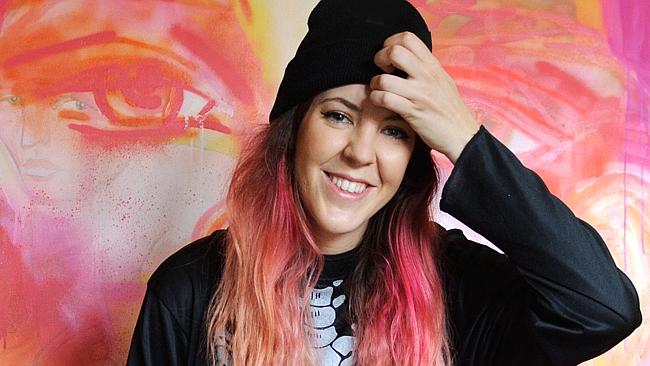Is Gen Y dreaming an impossible dream?
THEY’VE been told the sky’s the limit. But an average career isn’t good enough for Generation Y, they want to be living the dream.

I REMEMBER sitting in library class when I was six years old. The teacher had asked us to nominate what we’d like to be when we grew up, and I was thinking hard.
My classmates had parroted one another’s wish to become firemen and astronauts, but I was desperate to come up with something original. Something that showed just how special I was.
“Katie?” smiled Miss Nick.
“When I grow up,” I beamed, “I want to be a star!”
As Miss Nick continued around the circle, a pattern began to emerge. One after another, the kids echoed the grand ambition:
“A star.”
“A star.”
“A star!”
Those kids are all grown up now. And according to research, we still all want to be stars. As the theory goes, our 50s-era folks, trumped up on boomtime ambition, assured each and every one of us that we were special; that we could be anything we wanted to be.
The result? A generation of adults bent on “dream” careers. Whether we’re aspiring to become app-creators, artists, writers, or travel bloggers, for Gen Y, only a career as special as we are willing to do.
I ask Helinka Kelly, who left a well-paid career in publishing to pursue her dream of working with animals at a welfare organisation, whether the theory is fair.
“Yes.” She’s matter-of-fact. “I don’t know a single person our age who isn’t working toward some sort of dream.”
Does she feel her upbringing contributed to her decision to follow her passions?
“For sure. Mum and dad always told me I could be anything I wanted to be. There just wasn’t this concept of ‘settling’ in our family.”
But there’s a problem. Our parents’ economic optimism hasn’t translated into reality. Gen Y are the first generation in 80 years to see the economy slide so violently backwards. We earn less than our parents did at the same age, the premium on top-jobs means we are often grossly over-qualified for menial work, and many of us have been relegated to permanent-renter status by sky rocketing house prices.
Thus, there is a widely-held perception that Gen Y are languishing: so sure they deserve greatness, so morose that it isn’t easily forthcoming.
I ask Helinka whether she’s witnessing this despondency among her friends.
“We know that it’s a tougher environment for us,” she muses, “but it’s not like we’re just moping around being sad. My friends all work really hard, and we still have this innate belief that if we keep striving, we’ll achieve the dream eventually.”
What keeps them striving, though?
“I think there is this sort of quest for fulfilment. I chose my career because I knew it was the only thing that could make me happy. To me, there was just no other option. I guess Gen Y are sort of obsessed with this dream of being 100 per cent content. It’s way more important to us than money.”
Evidence of the obsession with fulfilment is everywhere. Mindfulness apps teach us to live in the moment. TV ads taunt us with images of lithe youths climbing mountains, reminding us that we only have “one life to live!” Social media sites like Instagram make billions encouraging us to present curated nuggets of wellbeing. Hashtag “blessed!”
Sarah Masson, a Brunswick painter and graffiti artist who left a lucrative career in graphic design to pursue her dream, ventures that the obsession with happiness might actually be a product of our testing economic times. “There’s this constant chasing of happiness, because the more elusive something gets, the more people are going to value it.”
There is a down side. Sarah posits that there is a “blurring of the lines between real happiness, and the happiness you present on social media.” Her art practice requires her to maintain a public image, one full of fun and laughter and mural-making.
She admits that, “Sometimes even I get confused about whether I’m really that carefree girl on my Facebook feed - am I as happy as she is?”
Helinka concurs. “There’s an expectation of happiness, and if you’re feeling down, there can be a sense of failure.”
Perhaps this goes some way to explain the Australian Bureau of Statistics findings that young Aussies experience ‘extreme psychological distress’ at rates three times higher than our boomer counterparts. Thirty per cent of Gen Y’ers between 25 and 34 experience psychological illness, and that figure climbs to 37 per cent of people under 24.
So, is happiness a realistic ambition? Or does the disparity between a poor economy and high expectations mean we are we chasing an impossible dream?
It’s not all bad, says Sarah. “When I look around, I see my friends choosing these modern, unique careers, and we are moving with the times. I put heaps of effort in to creating a digital brand, and it’s the same for my friends: we know we need to be running our own creative businesses and moving toward the digital realm. Maybe the economy is just taking a while to catch up!”
She may be right. The new economy, driven by digital-business, has already found a foothold internationally. As Australia moves further away from manufacturing and traditional jobs, it could be that those dream careers — travel bloggers, visual artists — will start to be much more mainstream.
“The people I surround myself with aren’t sad and angry,” says Sarah. “Gen Y are more resilient than we’re given credit for. We work incredibly hard at our passions and we’re finding ways to make money and be happy. It’s not a perfect world, but we’re coping!”
Gen Y are learning that we can’t all be stars. That doesn’t mean we’re going to stop trying.



